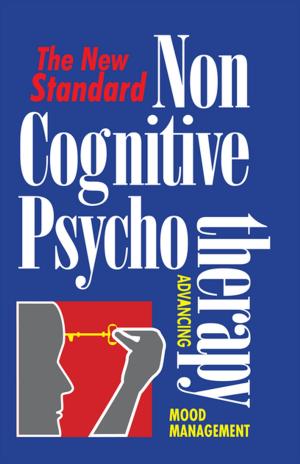| Author: | David Appleby | ISBN: | 9781462804764 |
| Publisher: | Xlibris US | Publication: | February 28, 2006 |
| Imprint: | Xlibris US | Language: | English |
| Author: | David Appleby |
| ISBN: | 9781462804764 |
| Publisher: | Xlibris US |
| Publication: | February 28, 2006 |
| Imprint: | Xlibris US |
| Language: | English |
A fathers decision to undertake a do-it-yourself-project for his daughter is made not with love, but spite; a daughter returns to the home of her childhood not so much to attend her fathers funeral, as to carry out a long-planned revenge; once a month a professor leaves campus to look in on her senile mother, only to find herself caught in a test of will and wit, and unaware that it is a contest in which the winners always lose; a waitress who nightly pines for the one she had allowed to slip away, uncharacteristically reaches out for one intense moment of intimacy with a mysterious stranger.
Those are the stories of just a few of the people whose lives are played out in Moon Alley. David Applebys carefully crafted stories are written in what the New England Review has termed, an easy, fluid style, and that, entwined with compassion, and an acute awareness of language, provides the reader of Moon Alley with a compelling look into the lives of those who live there.
WHAT PEOPLE ARE SAYING
Grady Harp, Los Angeles, CA United States
David Appleby is no newcomer to the field of writing, having composed two monographs stimulated by his experience as a grant recipient in creative writing, history and literature. But none of this incidental information prepares the reader for the solidly unique voice contained in the pages of MOON ALLEY, his first novel. Appleby writes with lucidity yet at the same time requires of the reader full attention to the microweavings of his narrative, a fine, almost Joycean rambling of apparent stories that on first appearance seem to be a collection of short stories only to capture us in his ever expanding web of time and place and atmosphere and recognition into a true novel.
MOON ALLEY is a dark book, a journey into the Irish American neighborhood of Philadelphia complete with all the detritus that the passage of time and industrial changes in America wreck on once tender ethnic havens of new immigrants. Moon Alley is a dead end dirty place where sundry characters live, drink, face failure, struggle for escape from the destiny that has befallen the neighborhood. The gathering places, in Applebys gifted hands become visual, complete with the stench of old beer, dank rooms, the neighborhood bar McFaddens Saloon containing The Ladies Room approached through the back entrance where the women gather to drink away their lives and gossip like a feminine mirror of the sots in the front bar, Charlies Diner, St Apollonias parish and highschool, the el (elevated train) which carries the noisy trains along The Avenue which dims the squalor and arguments to a muffled frustration, and the apartments and homes that house the down and out folks who live here.
The characters, while similar in environmental shadows, are as varied as any fine novel: Irish Tom drinks his life away, Fiona tends the customers, Megan is a waitress in the Diner and confronts her lonely solitude in strange ways including attempting to befriend a flasher, Johnny One Ball and his thwarted dreams of having a son, Old Lady Ryan, and Soapbox Cathy Malloy and Kathleen OConnor who managed to advance to higher education only to be pulled back into the home they escaped due to a parent with senility or a father who died a strange death preburied in cement. Each character moves from a minor set decoration in one story to the focal figure in another and another, so that by the end of the novel we know all sides of these degraded people. As one character phrases the conditions of Moon Alley and The Avenue Kathleen had likened the emotionally impoverished lives lived on The Avenue to a disease - something like polio, or tuberculosis - something so severe that, if she didnt escape its gray and gloomy view of life, with its mute acceptance of poverty, and its blind obedience to St. Apollonias, that if she followed her mothers lead and contented herself wi
A fathers decision to undertake a do-it-yourself-project for his daughter is made not with love, but spite; a daughter returns to the home of her childhood not so much to attend her fathers funeral, as to carry out a long-planned revenge; once a month a professor leaves campus to look in on her senile mother, only to find herself caught in a test of will and wit, and unaware that it is a contest in which the winners always lose; a waitress who nightly pines for the one she had allowed to slip away, uncharacteristically reaches out for one intense moment of intimacy with a mysterious stranger.
Those are the stories of just a few of the people whose lives are played out in Moon Alley. David Applebys carefully crafted stories are written in what the New England Review has termed, an easy, fluid style, and that, entwined with compassion, and an acute awareness of language, provides the reader of Moon Alley with a compelling look into the lives of those who live there.
WHAT PEOPLE ARE SAYING
Grady Harp, Los Angeles, CA United States
David Appleby is no newcomer to the field of writing, having composed two monographs stimulated by his experience as a grant recipient in creative writing, history and literature. But none of this incidental information prepares the reader for the solidly unique voice contained in the pages of MOON ALLEY, his first novel. Appleby writes with lucidity yet at the same time requires of the reader full attention to the microweavings of his narrative, a fine, almost Joycean rambling of apparent stories that on first appearance seem to be a collection of short stories only to capture us in his ever expanding web of time and place and atmosphere and recognition into a true novel.
MOON ALLEY is a dark book, a journey into the Irish American neighborhood of Philadelphia complete with all the detritus that the passage of time and industrial changes in America wreck on once tender ethnic havens of new immigrants. Moon Alley is a dead end dirty place where sundry characters live, drink, face failure, struggle for escape from the destiny that has befallen the neighborhood. The gathering places, in Applebys gifted hands become visual, complete with the stench of old beer, dank rooms, the neighborhood bar McFaddens Saloon containing The Ladies Room approached through the back entrance where the women gather to drink away their lives and gossip like a feminine mirror of the sots in the front bar, Charlies Diner, St Apollonias parish and highschool, the el (elevated train) which carries the noisy trains along The Avenue which dims the squalor and arguments to a muffled frustration, and the apartments and homes that house the down and out folks who live here.
The characters, while similar in environmental shadows, are as varied as any fine novel: Irish Tom drinks his life away, Fiona tends the customers, Megan is a waitress in the Diner and confronts her lonely solitude in strange ways including attempting to befriend a flasher, Johnny One Ball and his thwarted dreams of having a son, Old Lady Ryan, and Soapbox Cathy Malloy and Kathleen OConnor who managed to advance to higher education only to be pulled back into the home they escaped due to a parent with senility or a father who died a strange death preburied in cement. Each character moves from a minor set decoration in one story to the focal figure in another and another, so that by the end of the novel we know all sides of these degraded people. As one character phrases the conditions of Moon Alley and The Avenue Kathleen had likened the emotionally impoverished lives lived on The Avenue to a disease - something like polio, or tuberculosis - something so severe that, if she didnt escape its gray and gloomy view of life, with its mute acceptance of poverty, and its blind obedience to St. Apollonias, that if she followed her mothers lead and contented herself wi















